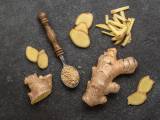Gastro esophageal reflux: 8 foods and drinks to absolutely avoid!

Gastroesophageal reflux is a very common disorder caused by the rise of stomach acid from the stomach to the esophagus. This phenomenon can cause uncomfortable symptoms such as heartburn, acid regurgitation and sometimes digestive difficulties. To effectively manage reflux, it is essential to follow a balanced diet and avoid certain foods that can aggravate symptoms. But what foods and drinks should be eliminated to alleviate this problem? Let's find out together in this article.
1. Fatty and fried foods
Foods high in fat, such as fried foods, aged cheeses and fatty meats, can impair the proper functioning of the digestive system. These foods slow down digestion, increasing the pressure inside the stomach and promoting the rise of gastric juices to the esophagus, a major cause of gastroesophageal reflux. For this reason, it is advisable to avoid foods such as French fries, cold cuts, sausages and particularly heavy sauces, such as those made with cream, butter or other saturated fats.
Preferring lighter, easily digestible options is a key step in improving digestive well-being and preventing reflux episodes.
2. Spicy foods
Spices such as chili peppers, black pepper and curry can irritate the delicate gastric mucosa, promoting the onset of heartburn and aggravating symptoms of gastroesophageal reflux. These seasonings, while adding flavor and intensity to dishes, overstimulate the production of gastric juices, increasing the risk of irritation.
For those suffering from reflux, it is advisable to limit their use in meals or opt for gentler alternatives, such as fresh or dried herbs, which enrich dishes without compromising stomach well-being.
3. Citrus fruits and acidic juices
Citrus fruits, such as oranges, lemons and grapefruits, along with their juices, are rich in citric acid, a substance that can intensify heartburn and aggravate irritation of the esophagus. These foods, if consumed regularly or in excessive amounts, tend to create an even more acidic environment in the stomach, making it more likely for stomach acid to rise up into the esophagus.
For those suffering from gastroesophageal reflux, it is therefore advisable to limit consumption, especially on an empty stomach or before bedtime, to reduce the risk of reflux episodes and related discomfort.
4. Tomatoes and derivatives
Tomatoes, along with their derivatives such as sauces, gravies, concentrates and ketchup, are known for their high acidity, which can irritate the mucosa of the esophagus and worsen symptoms of gastroesophageal reflux. These foods, in addition to stimulating increased production of stomach acid, can promote episodes of heartburn, acid regurgitation and digestive discomfort, especially when consumed in large quantities or in combination with other irritating foods.
For those suffering from reflux, it is advisable to limit consumption, preferring less acidic alternatives or opting for commercially available, low-acid variants.
5. Chocolate
Chocolate, although loved by many, is a food that can aggravate the symptoms of gastroesophageal reflux. This is because it is high in fat, which slows digestion, and contains theobromine, a natural chemical that has a relaxing effect on the lower esophageal sphincter. When this muscle relaxes, it becomes easier for gastric juices to move up into the esophagus, causing burning and regurgitation. In addition, chocolate contains caffeine, another compound that can contribute to worsening reflux.
For those suffering from this disorder, it is advisable to avoid or significantly reduce chocolate consumption, especially dark chocolate, which has a higher concentration of theobromine.
6. Carbonated and alcoholic beverages
Carbonated beverages, due to the presence of carbon dioxide, tend to increase the pressure inside the stomach, promoting the rise of gastric juices to the esophagus. This effect can intensify symptoms such as heartburn and acid regurgitation. Alcohol, on the other hand, is an additional risk factor: in particular, wine and beer have a dual negative effect. On the one hand, alcohol can relax the lower esophageal sphincter, the muscle that normally prevents gastric juices from rising, and on the other, it stimulates increased gastric acid production.
These combined mechanisms make carbonated and alcoholic beverages unsuitable for those suffering from gastroesophageal reflux, suggesting the need to limit their consumption to prevent or relieve symptoms.
7. Caffeine
Tea, coffee and other caffeinated beverages can significantly stimulate stomach acid production, contributing to increased pressure in the stomach and facilitating acid reflux to the esophagus. This effect can aggravate symptoms such as heartburn, acid regurgitation and feeling full. In addition, caffeine can relax the lower esophageal sphincter, the valve that prevents stomach acid from rising, making reflux more likely to occur.
For those suffering from this disorder, it is advisable to reduce consumption of caffeinated beverages or opt for alternatives such as caffeine-free herbal teas, which are less irritating to the digestive system.
8. Mint and menthol
Although mint and menthol are commonly appreciated for their digestive and cooling properties, their consumption can have a counterproductive effect for those suffering from gastroesophageal reflux. In fact, these substances can relax the lower esophageal sphincter muscle, whose job is to prevent the rise of gastric juices from the stomach into the esophagus. This relaxation can promote reflux, exacerbating symptoms such as heartburn and acid regurgitation.
For this reason, it is advisable to avoid their use in cases of reflux, despite their reputation as digestive allies.
You might also be interested in:
 Daniele Mainieri
Daniele Mainieri


Comments